The U.S. presidential race isn’t only drawing attention and controversy in the United States – it’s being closely watched across the globe. But what does the rest of the world think about a campaign that has already thrown up one surprise after another? CNN asked 10 journalists for their take on the race so far, and what their country might be hoping for in America’ s next president. (We’ll also be checking in again with some of them as the campaign continues). The views expressed are the writers’ own.
Canada: Nervous laughter over U.S. campaign

There was a time when we Canadians experienced U.S. election campaigns in the same way that a grandmother experienced bingo: The only reason we watched was to hear our numbers called out. Free trade, acid rain, softwood lumber, NORAD, border security. These were the entries on our game sheet – the only ones we cared about.
All that has changed over the last decade: Thanks to the North American Free Trade Agreement (NAFTA) and other free trade mechanisms, most of the bilateral issues between Canada and the United States have been resolved. Fear of the American colossus, once the great neurosis of Canadian public life, is now very much in decline.
In fact, the sense of intimidation that we once felt has been turned on its head: Many Canadians now observe America’s political spectacle with a sense of smugness. The unhinged rhetorical fusillades and open conspiracism of Ted Cruz and Donald Trump, in particular, have become a form of ironic reality show entertainment. “I would build a great wall” and all the rest are laugh lines in the Canadian media.
But it is nervous laughter they elicit. We wonder: How could this great nation to our south – a beacon of liberty, and the West’s great protector – have become a place where popular presidential candidates jabber about banning Muslims, or casually propose “carpet bombing” Middle Eastern population centers?
Dig beneath the spasms of insecurity, fear and smugness that Canada’s intellectual class has exhibited toward the United States, and you find an underlying attitude of warmth among ordinary people. Most of us travel to America, at least occasionally, for vacations and work. We talk to Americans every day on Facebook and Twitter, watch the same TV shows, follow the same sports.
America is a friend, in other words. Even left-leaning Canadians politicians such as Justin Trudeau will tell you as much.
But the face that this friend has shown us during the current presidential campaign – of naked religious bigotry, of race paranoia, of curdled nostalgia for mythologized “greatness” – is not a face we recognize or appreciate. And once the voting is done on November 8, we hope it is a face that Americans never show to the world again.
Jonathan Kay is editor of The Walrus magazine magazine.
South Africa: It’s Trump this and Trump that
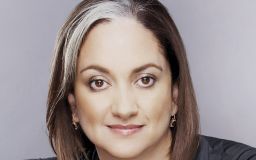
Donald Trump? After Barack Obama? For those South Africans paying attention at this point in the U.S. presidential race, the primary campaign has prompted furrowed eyebrows. Indeed, the word “incredulous” best describes the response here to Trump’s howl-a-minute, holler-a-minute, horror-a-minute bid to become the Republican nominee.
When Obama was running for the White House, it felt like a home race – and then a home run – for many South Africans. We were transfixed, as was most of sub-Saharan Africa, at the sight of this young, lanky, beautiful, clever, black man stepping up to take one of the most powerful jobs in the world. And then there was Michelle Obama. And Malia. And Sasha. It was black can-do in a perfect package.
Obama’s campaign of hope and change energized us, and biographies flew up the bestseller lists here. Of course, Obama’s message of hope and change have grayed at the temples, just like his hair has. True, he has managed to put in place a system that is transforming health care, and under his administration’s watch, sexual orientation is now just that – a sexual orientation, not some kind of abomination in the eyes of the law. True, he didn’t manage to close Gitmo, or end the conflict in Afghanistan and Iraq, but his presidency has still been transformative.
Now the same country that elected Obama seems to be toying with the idea of electing a comb-over king who doesn’t seem to like Muslims and Mexicans very much, leaving some here to wonder what he feels about black Americans and Africans.
I realize that Trump isn’t the only one running for president, but as in the United States, he has dominated the coverage of the race, and the other candidates have simply not found space in South Africa’s coverage of the primaries, outside of small, intellectual circles. It is Trump this and Trump that, outdoing himself again and again with his bigotry.
Even the fact that the United States might elect its first woman president in the shape of Hillary Clinton has not yet become a talking point, although here sub-Saharan Africa has already bested the United States – Ellen Johnson-Sirleaf has been president of Liberia since 2006.
So the focus has been on Trump, who unfortunately has run an insular campaign. If asked about his African foreign policy, I fear it would sound something like this: “Kenya? Isn’t that the place where Obama was born?”
Ferial Haffajee is editor of City Press newspaper.
Britain: America should elect a Brit

British understanding of the U.S. election is, as always, prejudiced. Sympathy is overwhelmingly with Hillary Clinton because we know very little about her, she isn’t a Republican, she’s a woman, and we like Bill Clinton. Sexual misdemeanor rarely kills a political reputation in Britain. We’re obsessed with money: Overcharge the taxpayers for official use of stationery and you risk assassination.
News coverage is dominated by Donald Trump. He reminds us of Gordon Gekko, but without the sex appeal. Britons find having money embarrassing and boasting about it nauseating – and The Donald makes matters worse by challenging our multicultural sensitivities. Trump has been criticized by the Prime Minister, and members of Parliament debated banning him from Britain.
The debate was widely mocked. It was an illiberal excuse to virtue signal, and some MPs appeared to forget that Trump has invested generously in our country. A lone, brave MP admitted that many of his constituents share Trump’s views. No one pointed out that Britain might just as easily ban President Barack Obama on the grounds that his administration has deported record numbers of illegal immigrants, or that UK citizens have been denied entry to the United States apparently on the basis that they are Muslim.
The ideal president for the Brits would be religiously agnostic, Keynesian and wary of intervention in foreign wars. In other words, we’d like America to elect a Brit. Assuming this does not happen, attention is falling on Bernie Sanders. Britain’s Labour Party, the official opposition, last year elected a radical socialist in a grassroots democratic revolution – and we see parallels with Sanders. (Although Sanders is, by comparison, a centrist).
Finally, the big issues for Britain are the war in Syria, the problem of integrating Muslim migrants and a promised referendum on our membership of the EU. The Brits would most like to know what the U.S. plan is for the Middle East. Across Europe, the lack of American leadership on foreign affairs is noted and regretted. Our own leaders have failed to fill the vacuum. The result: the bodies of refugee children washing up on European beaches. America desperately needs to talk about this.
Tim Stanley is a columnist with The Daily Telegraph.
Venezuela: Time for a thaw in ties
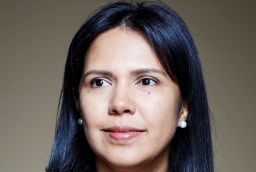
So, here we are in the midst of the U.S. presidential campaign. Meanwhile, relations between Venezuela and the United States have been on hold, with neither country having appointed an ambassador to the other since 2010. Yet despite the “anti-Yankee” narrative of the late former President Hugo Chavez, this is by no means a relationship of equal weight.
While the United States seems to be in the headlines in Venezuela every other day, Venezuela hasn’t been discussed in the current presidential campaign, not even after the country’s opposition took control of the country’s National Assembly after 16 years in the wilderness. (Of course it’s not just Venezuela that has been overlooked – Mauricio Macri’s election in Argentina hasn’t been talked about, either – so much for the influence of Latin America’s misnamed “progressive left”).
And maybe it’s better that way. Everybody – even The Donald – knows current Venezuelan President Nicolas Maduro is not Chavez. But what is remaining of “Chavismo” should be left to focus on domestic affairs. Indeed, judging by the very real problems facing the country, the U.S. candidates shouldn’t give Venezuela’s government an opportunity to distract the attention from these problems. So, please, don’t mention Venezuela.
What are the problems that Venezuela should be left alone to wrestle with?
Well, this oil-rich country is experiencing the worst crisis in its modern history – the IMF expects the country’s inflation rate to hit 720% this year, even as it grapples with food and medicine shortages. Meanwhile, the price of oil – the government’s main source of income – has tumbled to below $30 a barrel. With this in mind, Venezuelans aren’t currently worried or even thinking about the American presidential race at this point – they have bigger problems right now, problems that are closer and feel much more real.
This doesn’t stop some elements of Chavismo from still blaming the United States – Democrats and Republicans – for their misfortune. And the Venezuelan government has accused Washington of inciting conflict so it can take control of the largest oil reserves in the world. This even as at it continues to sell oil to the United States, which means by its own logic it is filling the tank of its imagined invader.
The truth is, though, that while oil imports from Venezuela represent only about 9% of American needs, the United States remains the biggest buyer of Venezuelan oil exports. Do the math and you can see why the government’s rhetoric is divorced from economic reality.
Cuba, which blames the infamous U.S. embargo for all its problems, has managed to restore diplomatic relations with the United States after some 50 years. I can only hope that whoever is elected in November, relations between Washington and Caracas improve – and that we don’t risk our own five decades of estrangement.
Mary Aviles is a journalist and co-founder of Venezuela Decoded.
Israel: Will next president protect ‘unbreakable bond’?

In my Jerusalem neighborhood café one cold morning in January, a colleague and I randomly asked three Israelis who they would like to be the next president of the United States. As you might expect, we got three very different answers. “I like Bernie Sanders,” said the young man as he made my coffee. “The things he says make sense.” The proprietor, preparing a cheese sandwich, disagreed. “Donald Trump is not afraid to say what a lot of people are thinking.” A woman sitting in the café said she had no strong feelings about the subject. “I don’t support any candidate,” she said. “It’s not our election.”
I don’t pretend to speak for all or even some Israelis. My gut feeling, though, is that many have a visceral mistrust of U.S. President Barack Obama, especially after he focused his energy on a deal with Iran, Israel’s archenemy. At the same time, no one really knows if Trump or Sanders or Hillary Clinton, for that matter, would be any better for Israel than Obama, who maintained a high level of U.S. aid to Israel and even quipped that he had been called America’s first Jewish president. As Israel reels from a tsunami of terrorism amid a moribund peace process with the Palestinians, Ted Cruz, Marco Rubio, Ben Carsen and Jeb Bush have been much more outspoken in their support for the Jewish state, but this has not resonated with the Israeli public or in the media.
Israelis want a U.S. president who will both say and do the right things, while not allowing any “daylight” in Jerusalem’s “unbreakable bond” with Washington. In this respect, they might deep down hope for the victory of either one of the frontrunners, Hillary Clinton or Donald Trump, because they might ultimately have Israel’s back. For better or worse, Clinton and Trump may also be the only two candidates that most Israelis can easily identify. Except perhaps for Sanders or Michael Bloomberg, one of whom really could be America’s first Jewish president.
Steve Linde is editor-in-chief of The Jerusalem Post.
Iran: Why Iranians want a Democrat
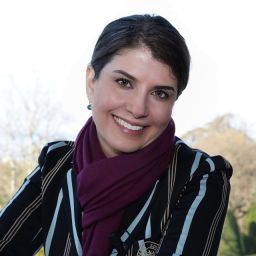
It’s probably too early for the Iranian public to decide on its preferred U.S. presidential candidate. At this point most Iranians just don’t know enough about the individual contenders. But they do know the differences between the parties – and what that could mean for ties between the two nations.
Iranians are hoping to see relations improve based on recent diplomatic achievements, while the implementation of the nuclear deal and the recent prisoner swap raised hopes that a Democratic president will follow in President Barack Obama’s footsteps.
“The continuation of Obama’s policy is what Iranians are interested to continue,” one prominent Iranian political figure told me. She also told me that she believes reformists and ordinary Iranians want a Democrat to win in November, no matter who comes out on top in the primaries.
This isn’t surprising – the majority of Iranians view the diplomacy pursued by President Obama and the moderate government of Iranian President Hassan Rouhani with approval, and they support the continuing progress. Direct contacts between Tehran and the United States after more than three decades of being on hold are a unique experience for many Iranians, who believe the Democrats offer the best chance of this continuing.
In contrast, the idea of a Republican victory in November conjures images of George W. Bush’s presidency and his “Axis of Evil” speech. The hostility such rhetoric stoked against the Islamic Republic empowered Iran’s conservatives, troubled reformists and journalists, and helped undermine the reform-minded presidency of Mohammad Khatami a decade ago.
As a result, many Iranians see conservative Republicans much like they do extremists in Iran – as determined to shatter current progress if they take power. One need only look at the disdain they have shown for the nuclear deal – and the threats by some to tear up the agreement.
But there is a certain irony in the tough line being taken by the Republican candidates – electing a conservative Republican could also have an impact on the next presidential election in Iran, and not in the way they might be hoping. The fact is that extreme talk fuels animosity in Iran – and increases the chances of Tehran’s hardliners seizing power. And that is presumably not what they intend.
Camelia Entekhabifard is an Iranian-American journalist and author of “Save Yourself By Telling the Truth.”
Japan: Candidates should drop fear-mongering

Last week, I was covering a Bernie Sanders rally in Iowa, and asked a 77-year-old man for his thoughts on the presidential race. After an initial visible look of panic passed over his face, we started talking, and I explained that I am a correspondent for a Japanese newspaper. When he heard that, he gave me a big a smile and started telling me how much he loved his Toyota, which he said he had been driving for decades.
That sort of warm reaction was a big contrast from the mood during my days as a student around 25 years ago, when I lived in Des Moines, Iowa. Back then, a trade dispute defined relations between the United States and Japan – and not in a good way.
Just consider a New York Times article from July 1990, which cited a recent poll asking about potential threats to the United States. It found 58% of Americans saw Japan’s economic power as a bigger threat to the United States than the Soviet Union’s military power.
That’s quite a statistic. Of course, fast forward to today, and the idea that Japanese economic might somehow endangers Americans is almost laughable after two decades of deflation in Japan. But that earlier poll came at a time when Japanese-manufactured cars were being vandalized on the streets of Detroit, and anti-Japanese rhetoric was seen as a vote-winner. Indeed, “Japan-bashing” was a central theme of Dick Gephardt’s presidential bid in 1988.
Few people remember such details in this forward-looking great nation. But I have been reminded of these types of attitudes – and how divisive they can be – when I hear Republican candidate Donald Trump on the campaign trail.
As he launched his campaign last summer, Trump said countries like China, Japan and Mexico are “killing us” economically. “Our country is in serious trouble,” he said. “We don’t have victories anymore. We used to have victories, but we don’t have them.”
I’m not going to argue with this diagnosis – plenty of people already have. But what is troubling is the way Trump and other candidates have tried to stoke people’s fears about other nations and their people as a way of collecting votes. Trump may be the most explicit and controversial in doing so, but he is by no means the only one, at either end of the political spectrum, to suggest that America should be scared.
If I am back in Iowa in another 25 years, I am pretty confident that many of the fears expressed by the public – and being preyed upon by candidates – will seem like a distant memory. But in the meantime, I wonder how much damage is being done.
Koya Ozeki is the Washington correspondent for the Yomiuri Shimbun, Japan’s largest newspaper.
Russia: Why the Kremlin wants Trump

If you ask the average Russian who is running for president in America, you’ll most likely get raised eyebrows instead of an answer. But one does not have to be a prophet to predict that if Donald Trump wins Iowa, Russian TV will be overjoyed.
The once seemingly endless debate among the Russian establishment over whether a Democratic or Republican president would be better has long seemed pointless. After all, Russia seemed to be getting along with George W. Bush – who once saw Vladimir Putin’s soul in his eyes – before an awkward confrontation as Russia invaded the Georgian provinces of Abkhazia and South Ossetia in August 2008. And although Barack Obama “reset” ties with Russia, his administration’s policy was thwarted with the annexation of Crimea and Russian military engagement in Ukraine.
President Putin likely knows he will never be regarded as a legitimate partner by any mainstream president of the United States. So it’s now all about Trump, who challenges not a political camp, but the core of the U.S. system itself. It was not by accident that Putin endorsed him last December, and the official Russian media has taken the same line since then. Edouard Limonov, once a rebellious Russian writer, put it bluntly in the pro-Kremlin Izvestia daily: “We prefer Trump because he accepts Russia as the state of the tough men.”
Ultimately, the Kremlin takes a two-pronged approach to the United States. Tactically, Russian authoritarianism presents itself as not all that different from Western liberal democracies. The argument goes that both kinds of regimes are flawed, with their strings pulled by forces from behind the curtain. Indeed, Putin is always keen to emphasize flaws in the American democracy, usually pointing out that George H.W. Bush won the presidency in 2000 despite losing the popular vote. In doing so, he seems to be sending a message to his nation that rigged elections in Russia are somehow a similar phenomenon.
Strategically, though, relations with the West are seen as a zero-sum game, and anything that can be seen as an American failure – whether on the battlefields of Syria or in domestic electoral politics – is seen as a reason to celebrate in Moscow.
And from this perspective, Vladimir Putin looks at Mr. Trump – a populist who seems willing to throw the usual values to the wind – as his natural ally, and a potential vehicle for his own global interests. If Trump secures the Republican nomination, Russian officialdom can be expected to celebrate his victory much like Napoleon celebrated his triumph in the battle of three emperors at Austerlitz two centuries ago.
Mikhail Fishman is editor in chief of The Moscow Times.
India: Why India is starting to pay attention
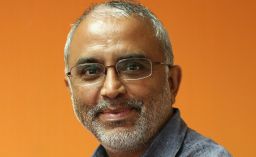
Up until 9 p.m. on January 25, Donald Trump was largely unknown to probably all but a relative handful of India’s 1.2 billion people – those who could afford to buy a pad in his eponymous towers in prosperous western Indian cities; maybe a few more who caught him on “The Apprentice.”
But within less than an hour on Monday, “Donald who?” turned to “Donald why?” as Arnab Goswami, the nation’s noisiest purveyor of nightly outrage, and his co-panelists, went full pelt on prime time TV at the Republican hopeful’s pointed reference to a turbaned protester at a rally. That’s what it takes – a perceived racial slight and a lot of shouting – to get Indians to realize that Americans are trying to find a new tenant for 1600 Pennsylvania Avenue.
So far, it is safe to assume that most news consumers have no idea who is eyeing the property. Hillary Clinton, they might know about because of the surname. But Ted Cruz and Bernie Sanders could be beach bums bouncing alongside Pamela Anderson in “Baywatch” for all most people know. Not that we are insular or uninterested, just that no one’s caught our fancy yet. It’s all a bit of a white blur.
At Outlook, a TIME-style weekly news magazine I edit, we twice considered putting the U.S. elections on the cover in the past year. “Is America ready for a Lady President?” was our working title until Hillary’s emails showed up. “The All-American Idiot” was another one we mulled when Trump went ballistic after the Paris attacks.
We didn’t go ahead with either because it seemed too early, and neither candidate had said anything of note on the only topic that grips Indians, young or old: American visas. Now that Trump is trying to control the damage his abrasive comments have made to Indian immigrants, maybe the time is nigh.
So maybe we will dub Trump “The Over Achiever” if he wins the nomination. After all, we awarded Barack Obama the opposite label four years ago, before he set out to prove us spectacularly wrong (and did so well that our prime minister was impressed enough to call him by his first name 17 times in his monthly radio address).
Come to think of it, hopefully we will be proved wrong about this one, too.
Krishna Prasad is editor of Outlook magazine.
Lebanon: U.S. election far from local story
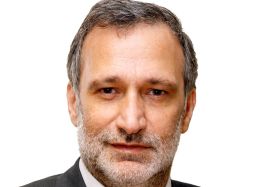
The U.S. presidential election has long ceased to be just a local American story, and with the campaigns approaching the final stretch as the primaries begin, international interest in the race to the White House is set to intensify.
It’s testimony to the fact that the United States remains the true global power that people and the media in most countries will follow the race closer than they follow even some local stories. This is particularly so in the war-ravaged Middle East.
While the social and economic agendas of candidates inevitably top the focus of the American public and media, the main interest in the Middle East is the foreign policy of the pretenders to the position of most powerful person in the world.
Although Lebanon is a tiny country, it sits at the heart of the fault line in the Middle East. With that in mind, Lebanese generally, like many Arabs, will be looking at the policies of the candidates as they relate to three key issues: Daesh (also known as the Islamic State of Iraq and Syria, or ISIS), the regional proxy war between Saudi Arabia and Iran, and the Israeli-Palestinian peace process.
ISIS has emerged as an extremely serious international terror threat, but it is an existential one to people in the Middle East, the Muslim majority that opposes it, Christians and other minorities. The reality is that Lebanon will never feel safe with ISIS terrorists at its doorstep.
But Washington is also being looked upon to help ease tensions between regional powerhouses Iran and Saudi Arabia. And it is in a unique position after the nuclear deal to check Tehran’s interference in the affairs of its Arab neighbors and to use its historic ties with Riyadh to contain the fires raging in the region.
As for issues relating to the Palestinians, the Lebanese are looking for a U.S. president who might nudge Israel into a peace deal that sees the Palestinians establish a viable state.
Ultimately, Lebanese will be interested spectators in the U.S. presidential race, and they will likely feel an affinity with the candidate that offers both leadership and a clear policy for tackling these vital regional issues.
Nadim Ladki is editor in chief of Lebanon’s Daily Star newspaper.
Join us on Facebook.com/CNNOpinion.
Read CNNOpinion’s Flipboard magazine.
